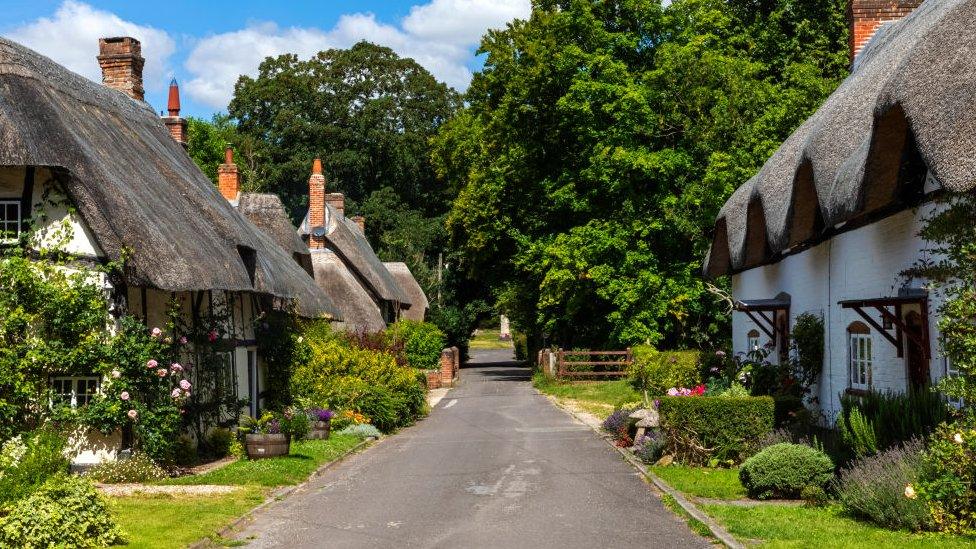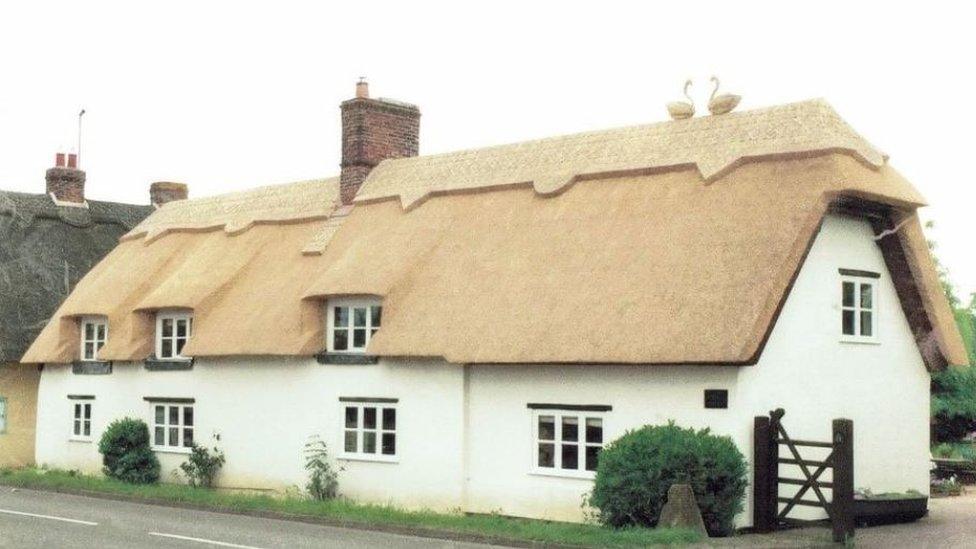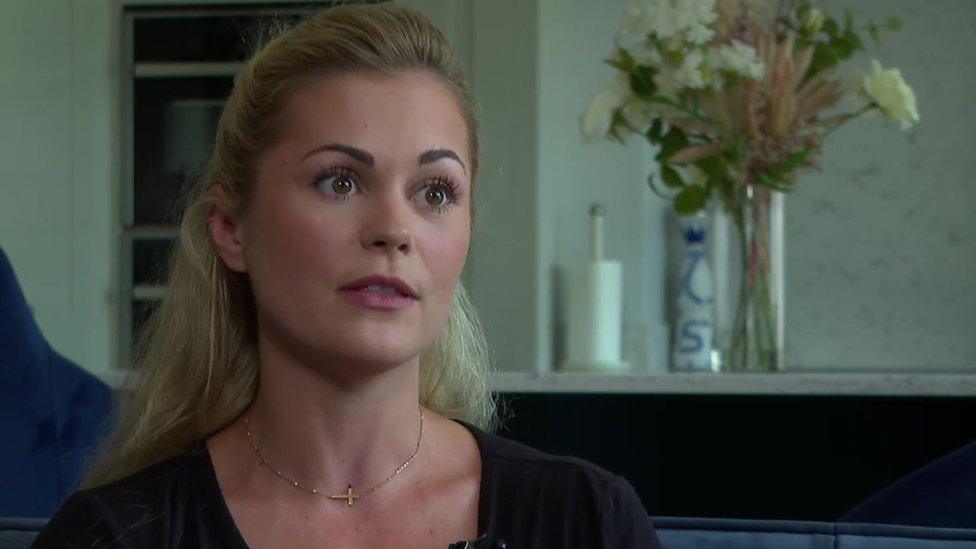Thatch price hike 'could force homeowners to sell'
- Published

Thatched cottages in Hampshire
Owners of idyllic "chocolate box" homes could be forced to sell up as the price of thatch surges, an expert has warned.
The price of a bundle of water reed has doubled to about £7 in 18 months, says the National Society of Master Thatchers (NSMT).
Britain uses 5m bundles a year, largely imported from countries including Ukraine, where war has hit supplies.
NSMT secretary Andrew Raffle said rising costs made replacement thatch unviable for many homeowners.
"There is still a demand for people wanting to live in a thatched property. It's an important part of our national heritage," Mr Raffle said.
"Inevitably, because of the rising costs, some will no longer be able to afford to continue living in them."
Thatched properties often have listed status, meaning roofs have to be repaired or replaced using like-for-like materials.

A property thatched using water reed
"But owners tend to be middle-aged and heading towards retirement," Mr Raffle added. "They only have a certain amount to spend."
He said the country's estimated 800 thatchers were absorbing, as much as possible, price hikes but added homeowners were inevitably having to shell out more.
Lincolnshire-based thatcher Stewart Alexander said he was charging about £8,500 more for a thatched roof than he was a year ago.
A thatched roof - typically costing about £20,000 for a medium-sized cottage - lasted about 30 years, he said.
Due to uncertainty over the supply of water reed, fuelled by the war in Ukraine, and increased transport costs, Mr Alexander said he chose to buy in bulk when available.
"I used to buy six weeks or so before a job," he said. "Now, because of what's happening in Ukraine, and the impact on supply, I have to plan much further ahead to ensure the material is there to complete jobs."
Restoration projects
Mr Raffle said the NSMT was working with the Broads Authority, which manages the Broads National Park, and Historic England to increase the number of reed beds, thereby reducing the reliance on imported materials.
A Broads Authority spokesperson said: "We are working with partners and land managers to restore greater areas of commercial reedbed.
"One such project is taking place at Horsey in the Upper Thurne area of the National Park, where wetland crops such a reed could be used for building materials, such as thatch or insulation boards."

Follow BBC East Yorkshire and Lincolnshire on Facebook, external, Twitter, external, and Instagram, external. Send your story ideas to yorkslincs.news@bbc.co.uk, external.
Related topics
- Published5 August 2022

- Published5 August 2022

